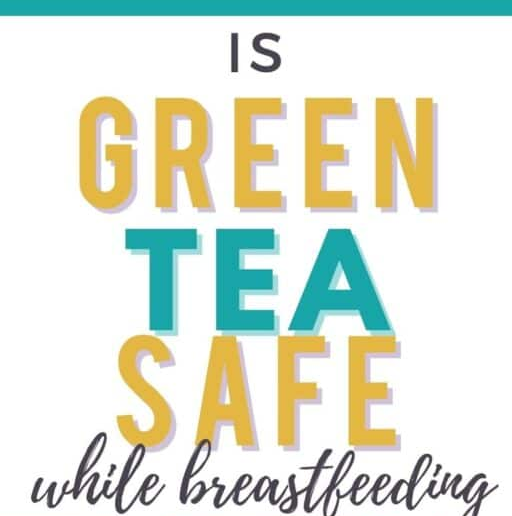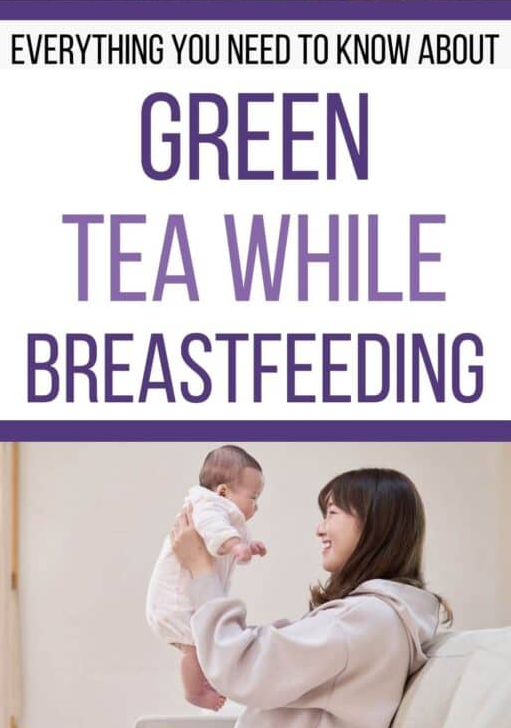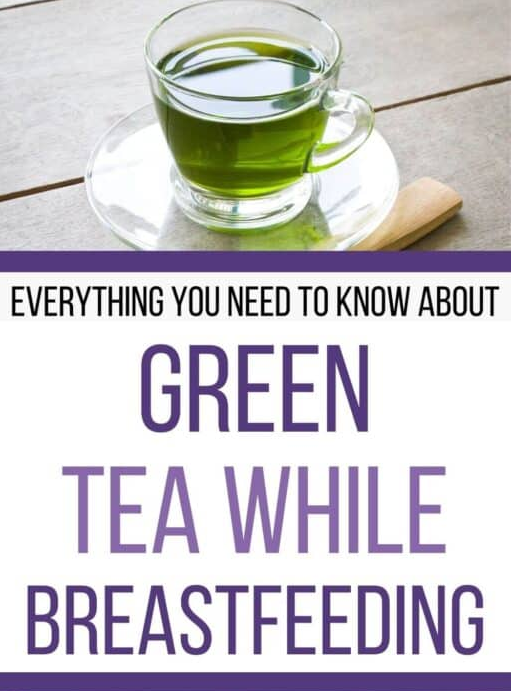Content Menu
● Introduction
● Understanding Green Tea and Its Components
● Safety Considerations for Breastfeeding Mothers
● Recommended Intake and Moderation
● Green Tea Extract: A Word of Caution
● Potential Benefits of Green Tea for Nursing Mothers
● Potential Risks and Considerations
● Alternatives to Green Tea Extract
● Best Practices for Consuming Green Tea While Breastfeeding
● Conclusion
● Questions and Answers
Introduction
Breastfeeding is a crucial period for both mother and baby, and many new mothers are often concerned about what they can safely consume during this time. Green tea, known for its numerous health benefits, is a popular beverage that raises questions among nursing mothers. In this article, we'll explore the safety, benefits, and potential risks of consuming green tea extract while breastfeeding, providing you with the information you need to make an informed decision.

Understanding Green Tea and Its Components
Green tea, derived from the leaves of Camellia sinensis, is renowned for its antioxidant properties and potential health benefits. It contains various compounds, including:
1. Caffeine: A natural stimulant that can affect both mother and baby.
2. Polyphenols: Antioxidants that help fight free radicals and reduce the risk of chronic diseases.
3. Catechins: A type of polyphenol with potential health-promoting effects.
4. L-theanine: An amino acid that may promote relaxation.
When we talk about green tea extract, we're referring to a concentrated form of these components, often found in supplements or weight loss products.
Safety Considerations for Breastfeeding Mothers
The primary concern when it comes to consuming green tea or its extract while breastfeeding is the caffeine content. While moderate caffeine intake is generally considered safe for nursing mothers, it's essential to be mindful of the amount consumed.
Caffeine can pass through breast milk to the baby, potentially causing:
◆ Irritability
◆ Sleeplessness
◆ Increased bowel movements
◆ Fussiness
It's important to note that newborns and younger infants may be more sensitive to caffeine than older babies, as their ability to metabolize caffeine develops over time.
Recommended Intake and Moderation
Most experts agree that consuming green tea in moderation is safe for breastfeeding mothers. Generally, one to three cups of green tea per day is considered acceptable and unlikely to cause adverse effects in most babies. However, it's crucial to consider the following factors:
1. Individual sensitivity: Some babies may be more sensitive to caffeine than others.
2. Total caffeine intake: Remember to account for caffeine from other sources, such as coffee or chocolate.
3. Timing: Avoid drinking green tea close to your baby's bedtime to minimize potential sleep disturbances.

Green Tea Extract: A Word of Caution
While moderate consumption of brewed green tea is generally considered safe, green tea extract presents additional concerns:
1. Concentrated caffeine: Green tea extract often contains higher levels of caffeine than brewed tea, increasing the risk of excessive caffeine intake.
2. Lack of regulation: Supplements, including green tea extract, are not strictly regulated, making it difficult to determine the exact amount of active compounds present.
3. Potential contaminants: Some supplements may contain additives or contaminants that could be harmful to you or your baby.
4. Limited research: There is insufficient reliable information about the safety of green tea extracts when used during breastfeeding.
Given these concerns, it's generally advisable for breastfeeding mothers to avoid green tea extract supplements and stick to moderate consumption of brewed green tea instead.
Potential Benefits of Green Tea for Nursing Mothers
When consumed in moderation, green tea can offer several potential benefits for breastfeeding mothers:
1. Hydration: Staying well-hydrated is crucial for milk production, and green tea can contribute to your daily fluid intake.
2. Antioxidant boost: The polyphenols in green tea can help protect your body from oxidative stress and support overall health.
3. Gentle energy boost: The combination of caffeine and L-theanine in green tea can provide a mild, sustained energy lift without the jitters often associated with coffee.
4. Potential weight management: Some studies suggest that green tea may support healthy weight management, which can be beneficial for postpartum mothers.
5. Relaxation: The ritual of preparing and sipping tea can be a calming, mindful practice for new mothers dealing with the stresses of parenthood.

Potential Risks and Considerations
While moderate green tea consumption is generally safe, there are some potential risks and considerations to keep in mind:
1. Iron absorption: The tannins in green tea can interfere with iron absorption. This is particularly important for breastfeeding mothers, who need adequate iron levels to support their own health and their baby's development. To mitigate this risk, avoid drinking green tea with iron-rich meals or iron supplements.
2. Milk supply: Some anecdotal reports suggest that excessive green tea consumption might reduce milk supply in some women. While scientific evidence is limited, it's worth monitoring your milk production if you choose to drink green tea regularly.
3. Baby's sleep patterns: Caffeine can affect your baby's sleep, potentially leading to shorter naps or nighttime wakings. Pay attention to your baby's sleep patterns and adjust your green tea intake accordingly.
4. Dehydration: While green tea contributes to hydration, it's important not to rely on it as your primary source of fluids. Continue to drink plenty of water throughout the day.
5. Individual sensitivity: Some babies may be more sensitive to the compounds in green tea than others. Watch for signs of irritability, changes in sleep patterns, or increased fussiness in your baby.
Alternatives to Green Tea Extract
If you're looking for the benefits of green tea without the potential risks associated with extracts or high caffeine intake, consider these alternatives:
1. Decaffeinated green tea: This option allows you to enjoy the flavor and some of the benefits of green tea with minimal caffeine content.
2. Herbal teas: Many herbal teas are considered safe for breastfeeding mothers and can provide various health benefits. Some options include:
◆ Chamomile tea (in moderation)
◆ Rooibos tea
◆ Peppermint tea (though some mothers report it may decrease milk supply)
◆ Ginger tea
3. Matcha: While matcha is a form of green tea and contains caffeine, it's prepared differently and may offer a more controlled way to consume green tea. However, it should still be consumed in moderation.
4. Green smoothies: Incorporating green leafy vegetables into smoothies can provide many of the antioxidant benefits associated with green tea without the caffeine concerns.

Best Practices for Consuming Green Tea While Breastfeeding
If you decide to include green tea in your diet while breastfeeding, follow these best practices:
1. Start slow: Begin with small amounts of green tea and gradually increase if you and your baby tolerate it well.
2. Monitor your baby: Pay attention to any changes in your baby's behavior, sleep patterns, or feeding habits after you consume green tea.
3. Time it right: Try to drink green tea shortly after nursing or between feedings to minimize the amount of caffeine that might reach your baby.
4. Stay hydrated: Ensure that green tea doesn't replace water in your diet. Continue to drink plenty of water throughout the day.
5. Choose quality: Opt for high-quality, organic green tea to minimize the risk of contaminants.
6. Avoid additives: Steer clear of green teas with added flavors, sweeteners, or other ingredients that may not be suitable for breastfeeding mothers.
7. Consult your healthcare provider: If you have any concerns or questions about consuming green tea while breastfeeding, don't hesitate to speak with your doctor or a lactation consultant.
Conclusion
While moderate consumption of brewed green tea is generally considered safe for breastfeeding mothers, it's important to approach it with caution and awareness. Pay attention to your body and your baby's reactions, and always prioritize your health and your baby's well-being. Green tea extract supplements, on the other hand, are best avoided due to their concentrated nature and lack of regulation.
Remember that every mother and baby pair is unique, and what works for one may not work for another. Trust your instincts, stay informed, and don't hesitate to seek professional advice if you have any concerns about your diet while breastfeeding.

Questions and Answers
Q: How long after drinking green tea should I wait before breastfeeding?
A: While there's no strict rule, waiting 2-3 hours after consuming green tea before breastfeeding can help minimize the amount of caffeine that reaches your baby. However, if you're drinking green tea in moderation, this may not be necessary for all mothers and babies.
Q: Can green tea help increase my milk supply?
A: There's no scientific evidence to suggest that green tea increases milk supply. In fact, some anecdotal reports indicate that excessive consumption might decrease milk production in some women. Staying well-hydrated and maintaining a balanced diet are more reliable ways to support milk supply.
Q: Are there any signs that my baby is sensitive to the caffeine in green tea?
A: Yes, signs of caffeine sensitivity in babies may include increased fussiness, difficulty sleeping, irritability, and more frequent bowel movements. If you notice these symptoms after consuming green tea, consider reducing your intake or eliminating it temporarily to see if there's an improvement.
Q: Is it safe to use topical products containing green tea extract while breastfeeding?
A: While there's limited research on this topic, topical use of green tea extract is generally considered safer than oral consumption of concentrated extracts. However, it's always best to consult with your healthcare provider before using any new skincare products while breastfeeding.
Q: Can I drink green tea if I'm trying to lose weight while breastfeeding?
A: Moderate green tea consumption may support healthy weight management efforts. However, it's crucial not to rely on green tea or any supplement for weight loss while breastfeeding. Focus on a balanced diet, gentle exercise (as approved by your doctor), and gradual, healthy weight loss to ensure you're meeting your nutritional needs for milk production.
































